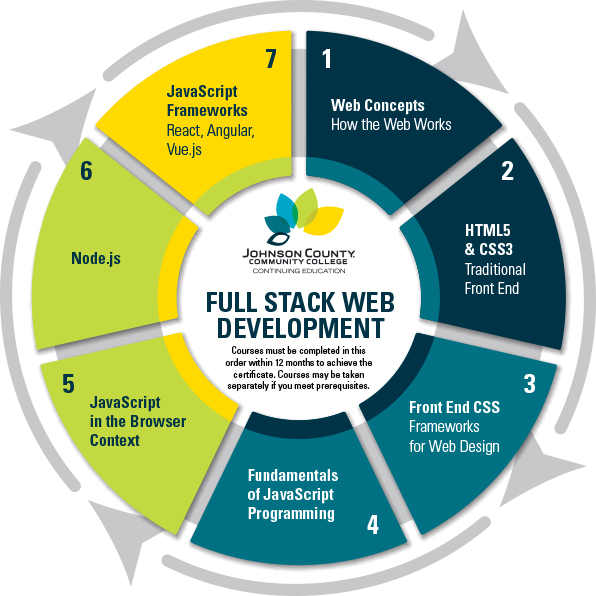Exploring Canadian Watercraft: Tips and Trends
Discover the latest in Canadian watercraft – from Lake Ontario fishing boats to kayaking in the Rockies.
Web Development: Where Code Meets Chaos
Uncover the wild world of web development, where creativity meets chaos. Dive in and transform your coding journey today!
The Basics of Web Development: Navigating the Code Jungle
Web development is an expansive field that encompasses a variety of skills and technologies used to create and maintain websites. At its core, it involves understanding HTML, CSS, and JavaScript, which form the backbone of web content and interactivity. Here's a quick breakdown of these essentials:
- HTML (HyperText Markup Language): The standard markup language for creating web pages, HTML is essential for structuring content.
- CSS (Cascading Style Sheets): CSS controls the layout and appearance of web pages, allowing developers to style HTML elements effectively.
- JavaScript: A powerful programming language that enables dynamic content and interactive features on websites, making them more engaging for users.
Navigating the code jungle of web development can be daunting for beginners, but understanding the fundamentals makes it easier. As you delve deeper, you'll encounter various frameworks and libraries, such as React, Vue, and Angular, which simplify the development process. Additionally, version control systems like Git play a crucial role in managing changes and collaborating with other developers. Embracing these tools will not only enhance your coding efficiency but will also empower you to tackle more complex projects with confidence.

Common Challenges in Web Development and How to Overcome Them
Web development is a multifaceted field that often presents a variety of challenges. One of the most common issues developers face is browser compatibility. Different browsers can display the same website in varied ways, potentially leading to a poor user experience. To overcome this challenge, developers can utilize responsive design frameworks like Bootstrap or employ tools such as BrowserStack to test their sites across multiple browsers and devices before launch. This proactive approach not only helps in identifying inconsistencies but also ensures a smoother experience for users.
Another significant challenge in web development is managing project timelines effectively. Delays can happen due to unforeseen technical difficulties or scope changes. To mitigate these risks, adopting an agile development methodology can be advantageous. This approach involves breaking projects into smaller, manageable parts with regular updates and feedback cycles. As a result, developers can stay on track and make necessary adjustments during the development process, leading to timely project completion and enhanced client satisfaction.
Ask the Experts: What Are the Best Practices for Streamlining Your Web Development Process?
When it comes to streamlining your web development process, incorporating agile methodologies can significantly enhance efficiency. Agile practices encourage iterative progress, allowing teams to respond to change more effectively. By breaking down projects into manageable sprints, developers can focus on delivering functional segments of a web application, minimizing extensive revisions later. Additionally, regular stand-up meetings can help identify roadblocks early, ensuring that team members remain aligned and informed.
Another essential best practice involves implementing robust version control systems like Git. By doing so, developers can maintain a comprehensive history of the project, facilitating easier collaboration and minimizing conflicts. Another key strategy is to adopt automated testing tools to identify errors and inconsistencies promptly. This proactive approach not only saves time but also enhances the overall quality of the final product. Ultimately, embracing these strategies can lead to a more organized, efficient, and successful web development workflow.